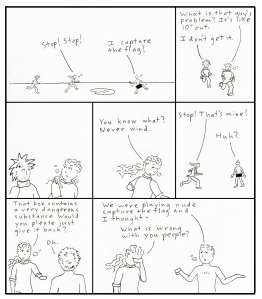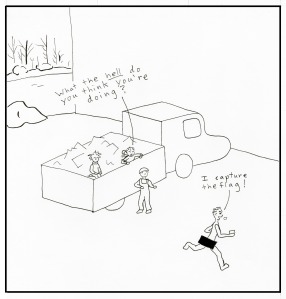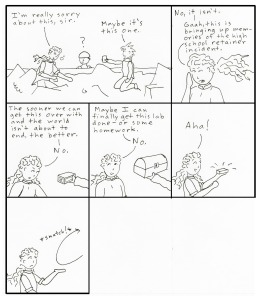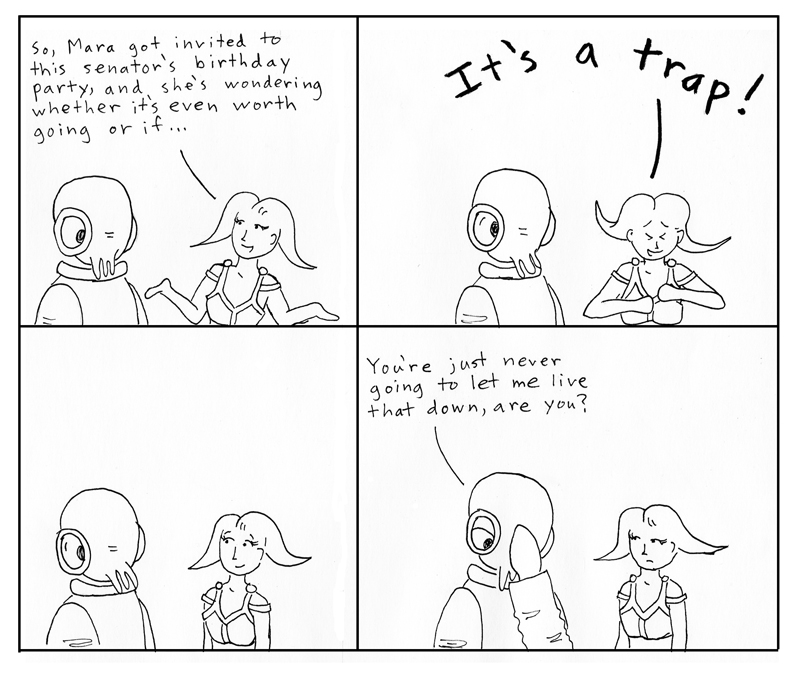I’m going to be studying Applied Plant Sciences at the University of Minnesota next year! Woo-hoo!
Zwitterion
Across the Nightingale Floor: Tales of the Otori
 There’s an unwritten rule in the zombie flick genre that you’re not allowed to use the z-word. Call them anything else you like, revenants, unmentionables, the infected, the restless dead, but they are not – are not – zombies. Because to call them zombies would be to acknowledge that you’ve got zombies in your movie.
There’s an unwritten rule in the zombie flick genre that you’re not allowed to use the z-word. Call them anything else you like, revenants, unmentionables, the infected, the restless dead, but they are not – are not – zombies. Because to call them zombies would be to acknowledge that you’ve got zombies in your movie.
Something like that is going on in Across the Nightingale Floor: Tales of the Otori by Lian Hearn. Takeo is a freaking ninja. Sure, in the context of the story, they say he’s a member of the Tribe, a nomadic people who dress in black and perform political assassinations for people. Maybe Hearn wants to escape the stigma of writing a book about ninjas. But you know what? That’s okay. Takeo is so cool, and the book is so well written, that I don’t much care what he calls him.
Takeo grew up in a peaceful farming village with his mother and stepfather. When this village gets sacked by the evil bad guys, he’s taken in by a mysterious stranger, learns some surprising things about who his real father was, and goes into secret ninja training to defeat the evil overlord. This plot may sound a little familiar. But it’s spiced up with some delicious political machinations (you may find it helpful to take notes) and a writing style that sucks you into Takeo’s world. Just check out these lines from the opening page:
But when I did get back, muddy from sliding down the hillside, bruised from fighting, once bleeding great spouts of blood from a stone wound to the head (I still have the scar, like a silvered thumbnail), there would be the fire, and the smell of soup, and my mother’s arms not tearing me apart but trying to hold me, clean my face, or straighten my hair, while I twisted like a lizard to get away from her.
Across the Nightingale Floor is a vision of a Japan that never was. You can practically smell the persimmons and the frying eels. There’s an intense psychological realism, both for Takeo and his love interest, the lady Kaede. The end leaves several issues hanging, so now I want to get my hands on the other two books in the trilogy.
And did I mention that there are ninjas?
Sound Quality
When I podcasted Grizelda in the fall of 2008, I got some complaints about the book’s sound quality. This isn’t too surprising, since I was recording it with a $25 USB microphone in my dorm room. I rubber-banded a Kleenex over the mike head to cut down on room noises.
Anyway, determined to make The Confederacy of Heaven into a better, stronger podcast than Grizelda, I’ve been looking into better sound recording options. Turns out that Carleton’s Cinema and Media Studies department has a sound booth that’s open for student use. For free. All you have to do is sign up for an appointment, so I did, for tomorrow afternoon.
I get to talk into a real microphone tomorrow! I’m going to feel like a DJ.
Zwitterion
Confederacy Update
The Confederacy of Heaven is now moving from the editing to the recording stage!
Zwitterion
Further Proof That I Will Never Be Normal
The Grandpa with Hellfire in His Eyes
See this post on Hyperbole and a Half. The rest of her blog is good, too.
Fool on the Hill
Is it ever a good idea for a magician to explain his tricks? When you find out the mechanics behind an illusion, it leaves you feeling disappointed when you realize there isn’t really any magic involved. Even worse to be shown how a hot dog is made. There are some things man was not meant to know. It should come as no surprise, then, that when Matt Ruff shows us the ugly workings of how a story is made in his novel Fool on the Hill, he gets mixed results.
That I felt that there was some wish-fulfillment going on in this book would be an understatement. S. T. George is a multiply-published, rich and famous author who has a writer-in-residence post on the campus of Cornell University. He slays a dragon by story’s end and gets the girl, and no, I am not revealing any spoilers by saying this. Along the way he gets to have fantastic sex with a goddess. George is too much of a dork to accomplish any of these things by himself, so we get to see the god Apollo manipulate events in his life into the shape of a story.
Fortunately, the side characters – and the prose itself – are good enough to make up for a bland leading man and love interest. (Her name is Aurora and she’s a Daddy’s little princess – three guesses as to what happens to her.) This alternate Cornell is populated by pixies, a possessed mannequin, and Ragnarok, the Black Knight. Ragnarok is an undergraduate haunted by his past in the Klan and interesting enough to be the main character of a book in his own right.
Matt Ruff is a master of the throwaway reference, rivaling Neil Gaiman’s Sandman comics and perhaps even besting him for the sheer density of the things. One of the characters (he’s a talking dog) approaches a pair of canine philosophers to ask them about the nature of the divine. They inform him that they are waiting for Dogot, and ask him whether he has seen him. No mention of this incident is ever made again. There is also the case of the best scene of the book, when the villain’s rat army is preparing to take over Cornell’s dining hall. They forgot to account for the hall’s head chef:
The chef is Swedish, in case you were wondering.
Ruff is also capable of writing beautiful prose … when he feels like it.
“Are you real?” he asked her, still dizzy from the fall.
“What?” Myoko glided up to him. “You been into something heavy tonight, Li?”
He didn’t answer, but reached out gently to touch her, as if fearing that she too might whirl and vanish. He clasped her hand in his, marveling at the feel of solid flesh and bone; he brushed his fingertips against her cheek.
True, there are so many gonzo occurrences in this book that it can only be called a WTF book, but it’s a good kind of WTF book. The plot is contrived. Ruff acknowledges that it’s contrived, and even goes to lengths to show us how he … I mean Apollo … contrived it. As a writer, I’m quite familiar with the manipulations that Ruff/Apollo undergoes to get characters in the right places so that coincidences can happen. I’m just not sure if it belongs in a finished product. When an author tells us he’s about to employ a deus ex machina, it’s not as much fun anymore.






